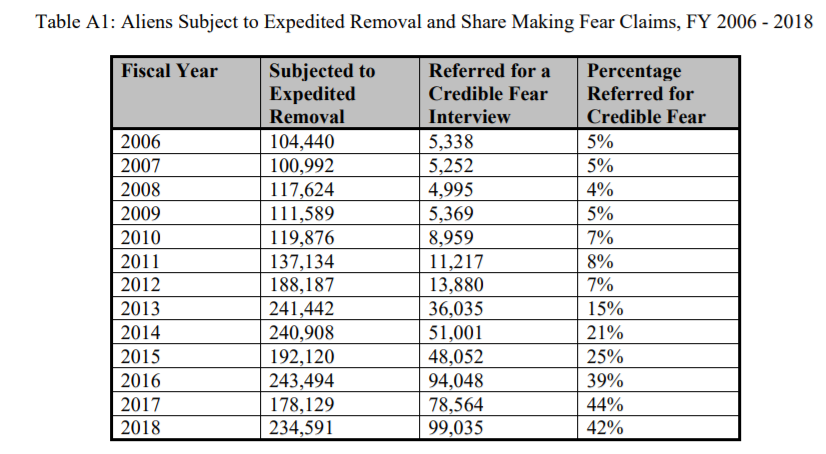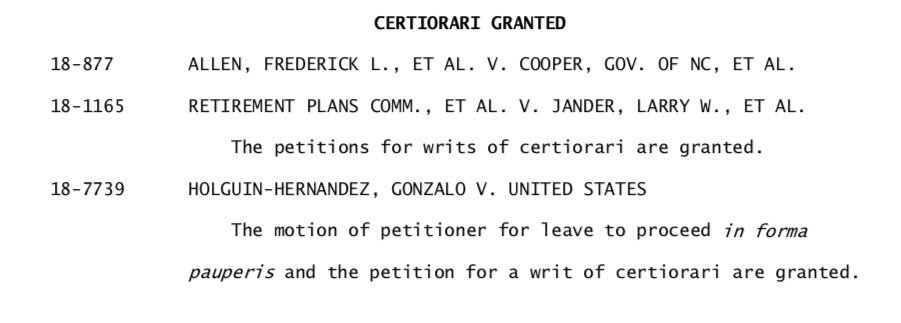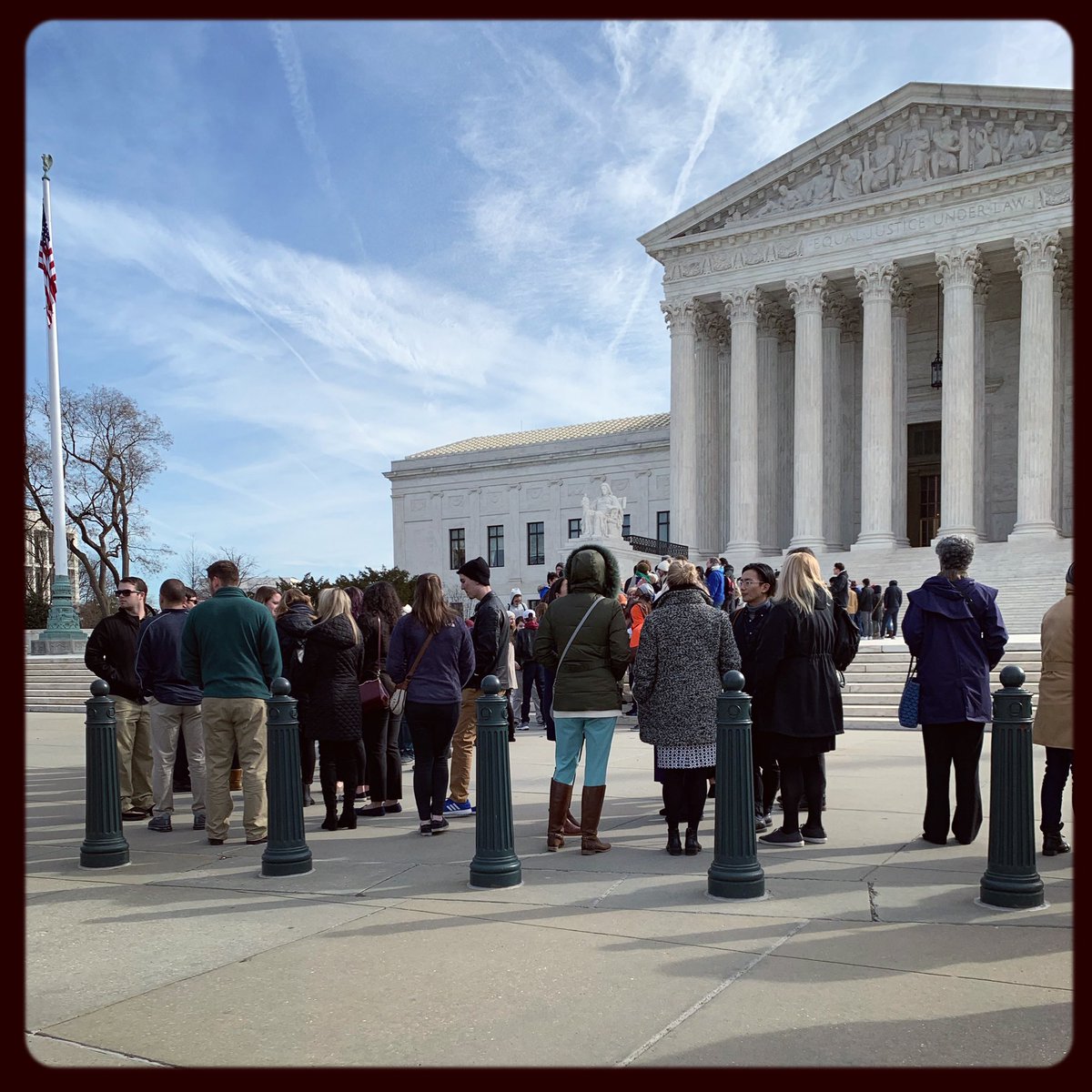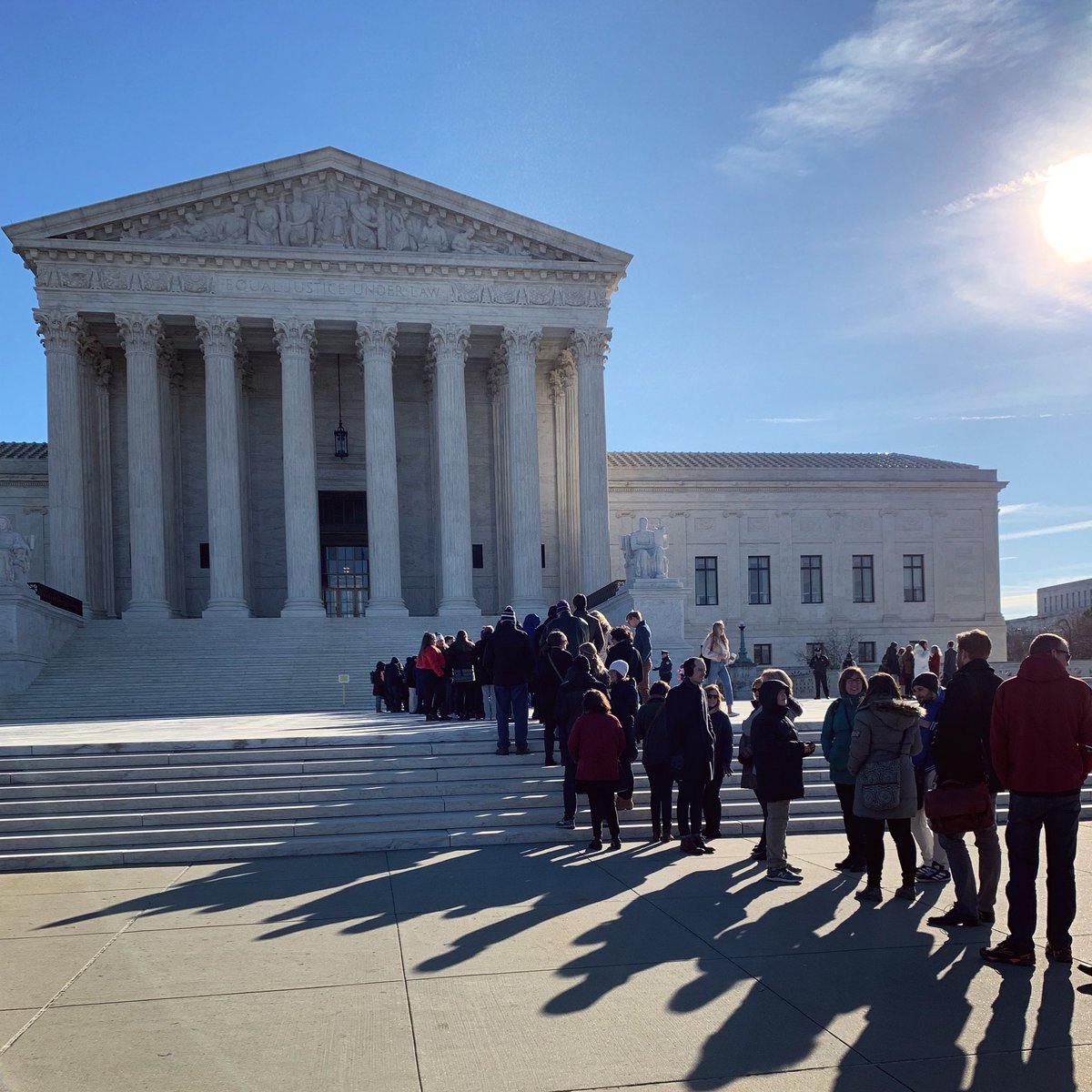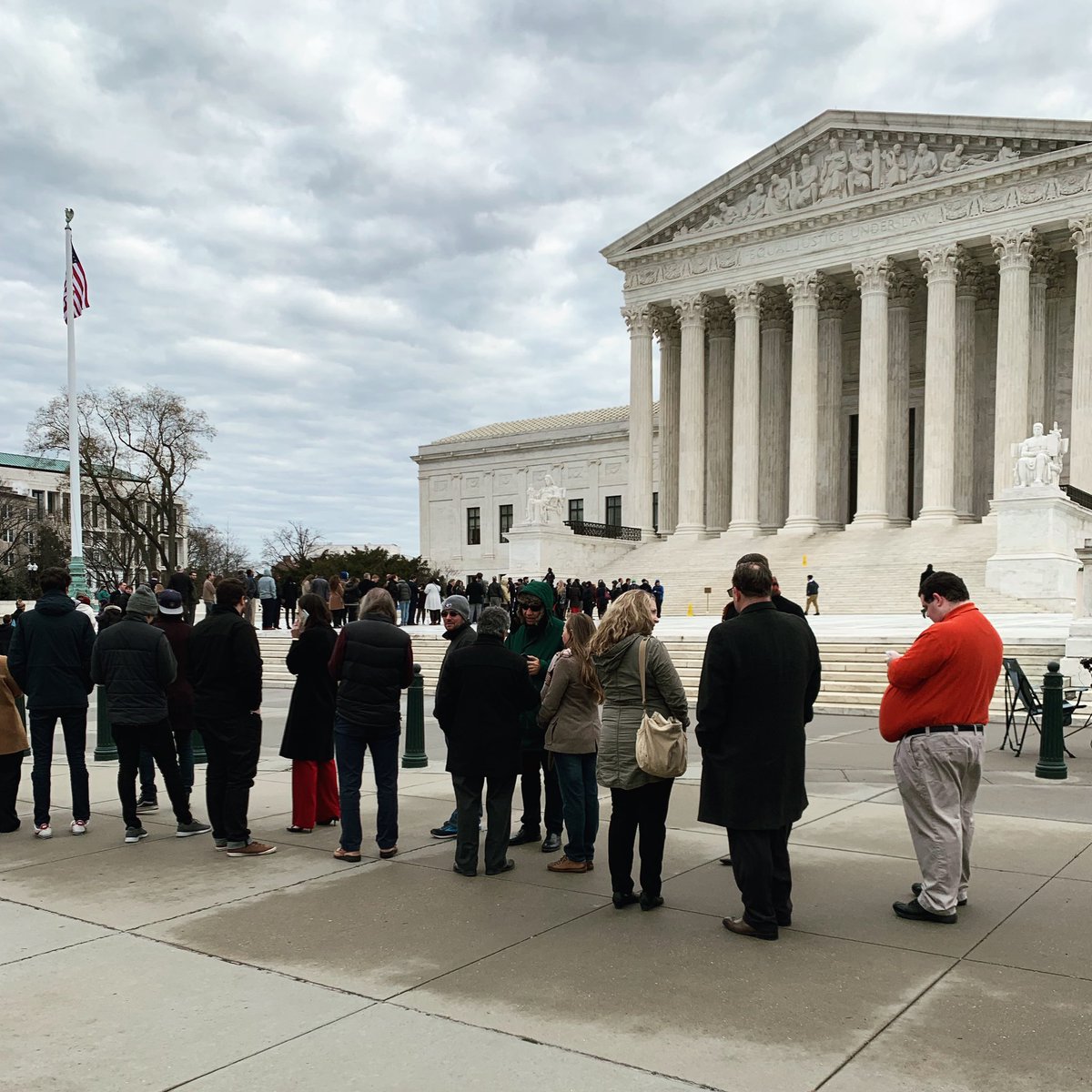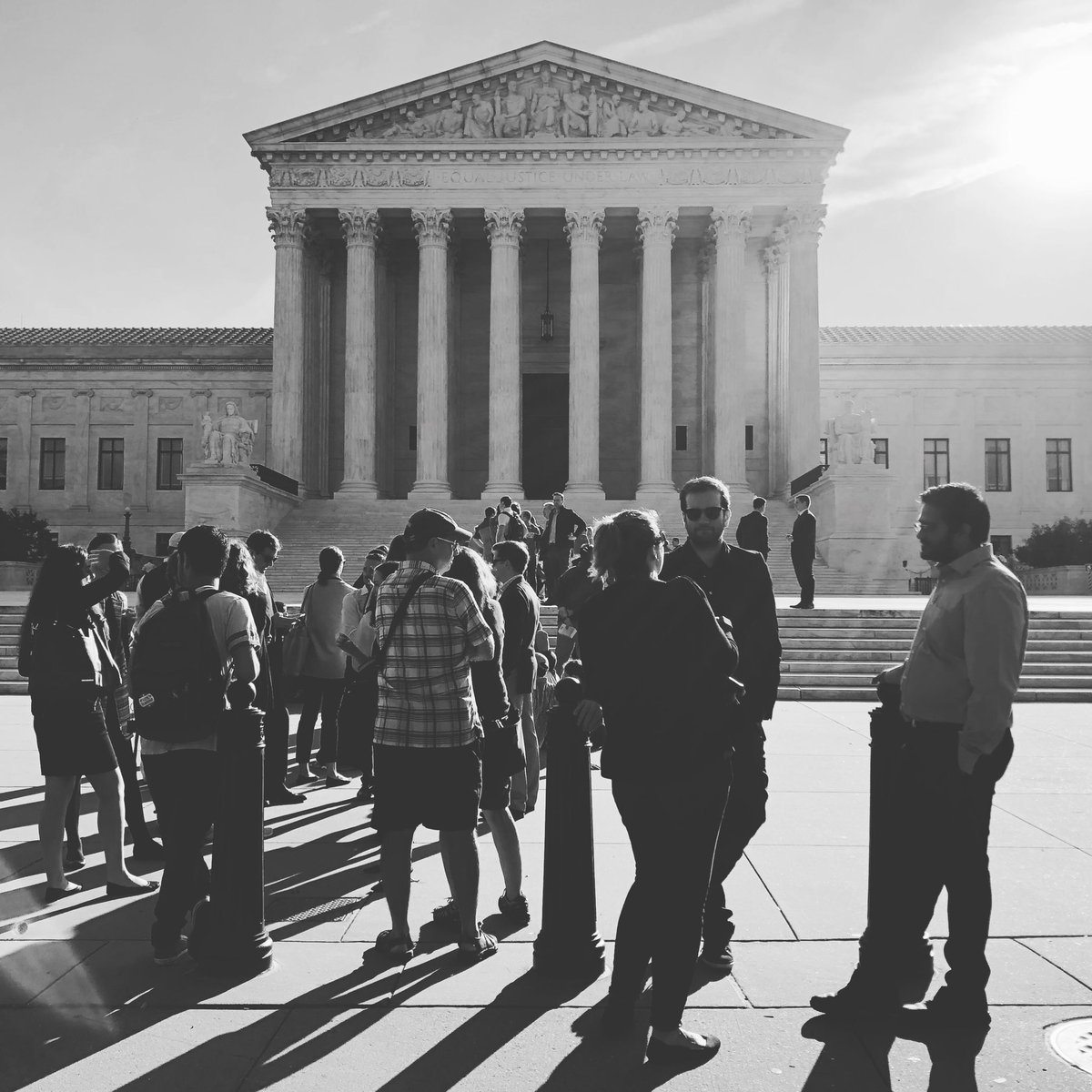At oral arguments, this seemed to play out thematically in two arguments: "Congress wanted to be precise," vs. "Congress wanted to be harsh."
I want to offer a third possible theme.
The government says that distinction is artificial.
But someone who commits an offense that renders them deportable—but not inadmissible—*can't* be put into court!
But Congress didn't mention that! It only discussed curbing delay tactics and preventing people from becoming eligible during court—all of which require court to be possible.
Hopefully the Court agrees!






